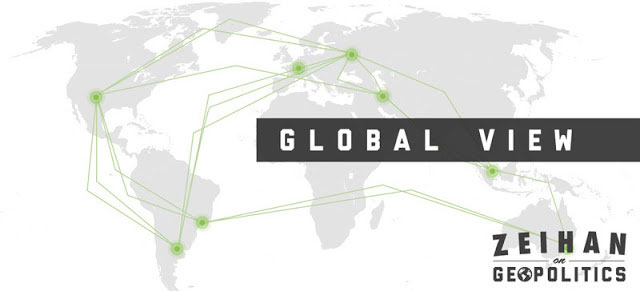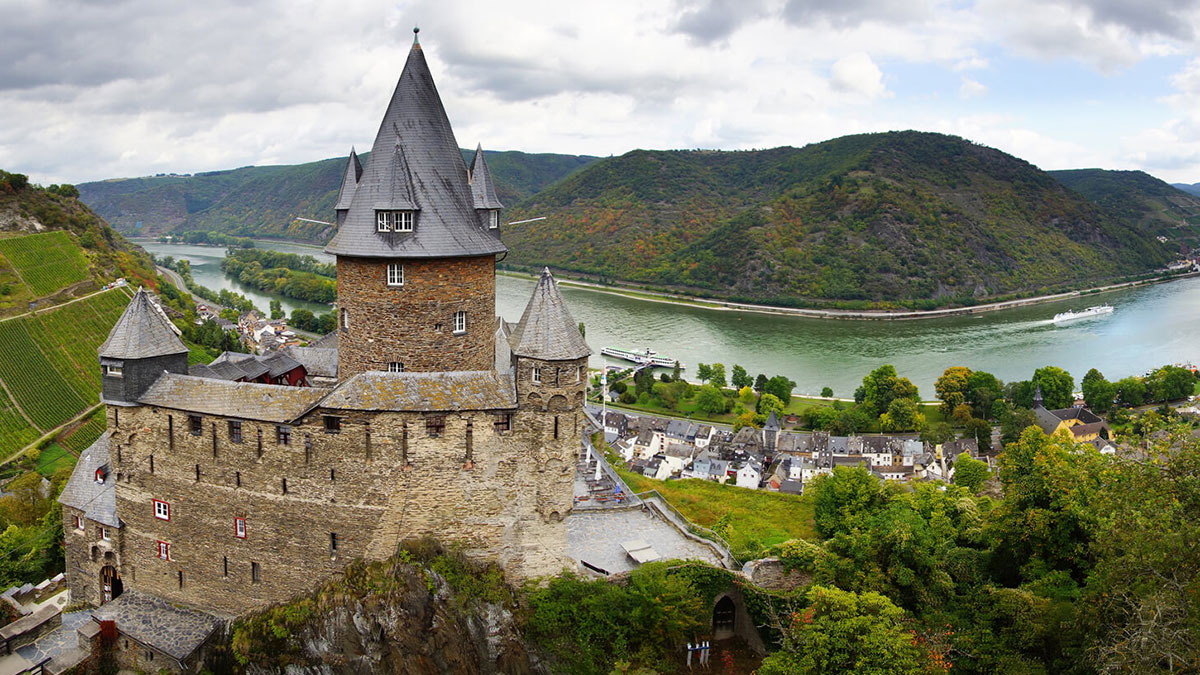Tal como o George Friedman já tinha visto e alertado há uma larga meia-dúzia de anos, a Alemanha é a mais frágil e vulnerável das economias da União Europeia. Peter Zeihan analisa detalhadamente, já depois da patética reunião do G7 no Canadá, esta fragilidade e procura colocá-la em perspectiva e em prospectiva. A fragilidade política intrínseca deste Estado alemão é de outra natureza e não é aqui abordada por Peter Zeihan, tal como Friedman também a não havia analisado. Essa é a grande lacuna destas análises. Porque se, tal como Friedman e Zeihan demonstram, a “felicidade” da Alemanha dos últimos 70 anos se deve a um factor exógeno, o estável quadro geopolítico assegurado pelos EUA, e se é o regresso turbulento da geopolítica que se tornou a ameaça estrutural a essa “felicidade” alemã, então, a questão da fragilidade intrínseca do Estado alemão tem rapidamente de entrar nas análises, cálculos e equações… Os franceses há muito que o perceberam e que o têm estudado mas mantêm sobre a matéria um conveniente, pesado e discreto manto de silêncio.
Só Christian Harbulot ousou um sibilino “a espargata política da Alemanha não vai poder aguentar-se muito mais tempo”…
I Think They Get It Now, Part III: GERMANY
Peter Zeihan | Z. on G. | 13 Junho 2018
Read Part I and Part II.
You may have noticed, but the Germans lost the world wars. Ever wonder why? The obvious answer is they started a two-front war, but the truth is more basic. Germany sits in the middle of the Northern European Plain (NEP), a stretch of flat, arable, temperate, well-watered, densely-rivered territory that comprises most of the rich parts of Europe. It is a great place to craft a successful ethnicity, polity, economy and state. With one exception: Germany sits in the middle of a plain. Germany doesn’t have much in terms of defensible borders.

As big as Germany is, the Germans will never enjoy a quantitative advantage over their collective competitors so their only option is to be better at, well, everything: infrastructure, education, planning, financing, manufacturing, and so on.
But there are no secrets in Europe. The high productive capacity of European farmland means the whole region was the first in the world to urbanize. Combine a dense population footprint with an agriculturally rich zone like the NEP, and French cities and Dutch cities and Polish cities and Danish cities are so close to German cities that everyone’s noses are perennially in everyone else’s business. Germany cannot hide how good they are. Make anything as big as Germany as efficient as Germany and its mere existence is interpreted by everyone as an existential threat, prompting a pan-European alliance that tears it down.
Germany can deal with this in two ways. Option one is to hope against hope that no one will come for it in the night. Every time that do-nothing strategy has been chosen, Germany eventually suffers cataclysmic defeat and dismemberment. Option two is to attack first, trying to defeat its rivals in sequence before they can overwhelm Germany. Every time that strategy has been chosen, Germany eventually suffers cataclysmic defeat and dismemberment.
Unfortunately for the Germans, they live in a geography that actively discriminates against successful long-lived countries.
But the post-World War II world is different from what came before. In the bad ole days the imperial powers (Germany included) duked it out in a more or less continuous march of often-multisided wars. Trade among the empires was kept deliberately curtailed because trade with today’s friend could quickly devolve into dependency upon tomorrow’s enemy. Germany’s perennial quest for superior quality was harnessed for military purposes, and the Germans kicked some serious ass. From unification in 1871 on, the Germans inflicted triple or more the casualties on their foes than were inflicted upon them. The marrying of such a deliberately fractured international system to the rising industrial technologies to Germany’s penchant for perfection brought us to the inevitable horrors of World War II.
At war’s end the Americans bribed all the expeditionary powers – wartime allies like the United Kingdom and France and wartime foes such as Japan and Germany – to be part of its Bretton Woods alliance. The rivals who had caused the war were now clustered under American strategic leadership. The most successful of those powers were those able to refabricate their systems to fully take advantage of a world of open borders, of a world where the Americans provided free security for all, of a world where all the expeditionary powers were aligned, of a world where trade wasn’t something to fear, but something to embrace.
No one did it better than Germany.
Because Germany was defeated, the Germans had the advantage of a clean slate. The ancien régime wasn’t simply removed, it was executed. The allies imposed a new constitution (the Germans know it as the Basic Law) which established a number of legal roadblocks to keep extremist parties away from decision-making power.
(Leia a versão integral desta brilhante análise em IntelNomics – A INSUSTENTÁVEL FRAGILIDADE DA ALEMANHA)
Exclusivo Tornado / IntelNomics

Receba a nossa newsletter
Contorne o cinzentismo dominante subscrevendo a Newsletter do Jornal Tornado. Oferecemos-lhe ângulos de visão e análise que não encontrará disponíveis na imprensa mainstream.



